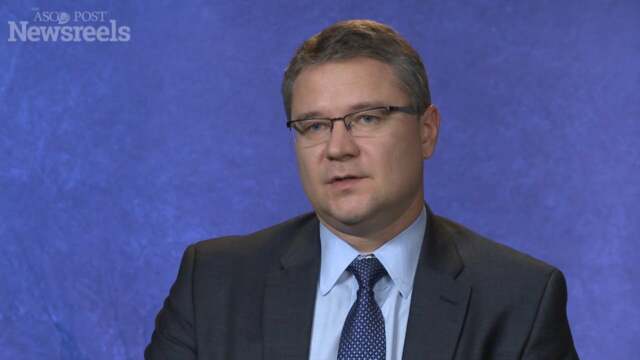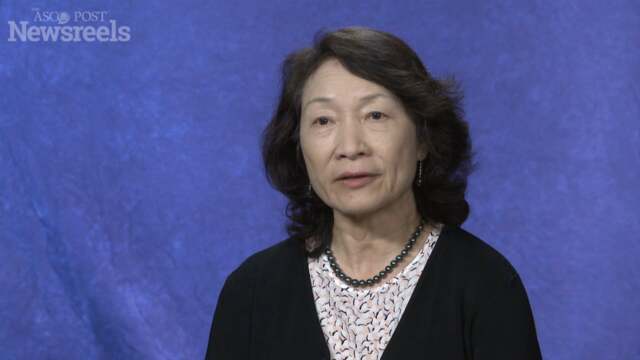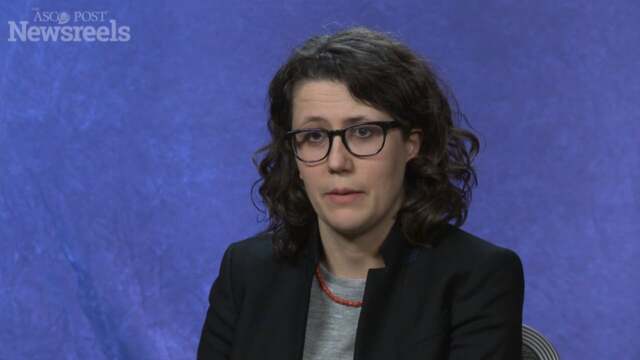Martin J. Edelman, MD, on NSCLC: Final Results of a CALGB Alliance Trial
2017 Multidisciplinary Thoracic Cancers Symposium
Martin J. Edelman, MD, of Fox Chase Cancer Center, discusses study findings from a phase III study of celecoxib in addition to standard chemotherapy for advanced non–small cell lung cancer with COX-2 overexpression (Abstract 2).
Boris Sepesi, MD, of The University of Texas MD Anderson Cancer Center, discusses immune cells within tumors and the potential role for checkpoint inhibitor therapy in the neoadjuvant setting of locally advanced lung cancer (Abstract 7).
Tracey L. Evans, MD, of the University of Pennsylvania, discusses the data supporting use of chemotherapy with radiation in locally advanced non–small cell lung cancer, targeted treatments and immunotherapy, and some of the controversies now debated.
Zhongxing Liao, MD, of The University of Texas MD Anderson Cancer Center, discusses the continued improvement in planning, delivery, and patient selection for proton therapy, which can both reduce radiation exposure and increase tumor dose.
Charles B. Simone, II, MD, of the University of Maryland Medical Center, discusses results from a large prospective study in locally advanced non–small cell lung cancer, which suggest that circulating tumor cells may be a promising biomarker of progressive or recurrent disease and may help guide early salvage treatment strategies (Abstract 3).
Zofia Piotrowska, MD, of the Massachusetts General Hospital Cancer Center, discusses heterogeneity and variation in resistance mechanisms among EGFR-mutant non–small cell lung cancer patients with at least one postresistance biopsy (Abstract 1).





